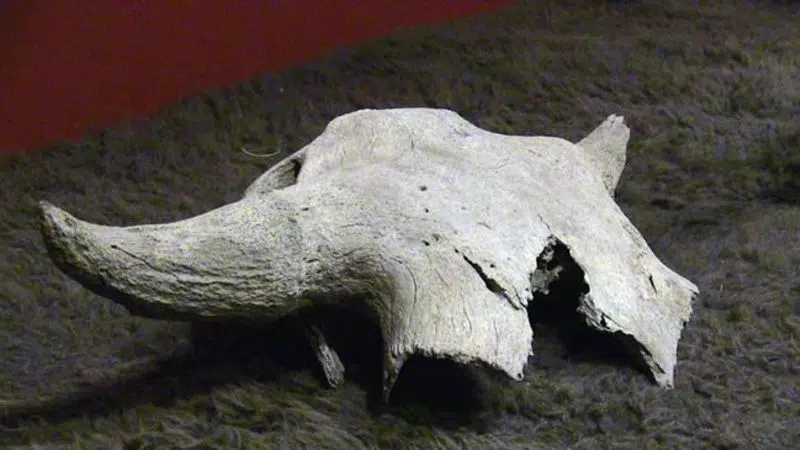
‘Welcome home:’ More than 2,000-year-old bison skull returned to Blackfoot
SIKSIKA, Alta. — A more than 2,000-year-old bison skull unearthed during utility work in downtown Banff, Alta., has been returned to a southern Alberta Indigenous community.
“It’s like a welcome home to the buffalo skull,” Siksika Nation councillor Eldon Weasel Child said Friday.
The skull was given a traditional blessing at the Blackfoot Crossing Historical Park east of Calgary, which was the site of the signing of Treaty 7 in 1877. Members of the Siksika Nation then sang Blackfoot honour songs accompanied by drums and rattles.
“Any prayer we are involved with is first and foremost to give thanks for life and the gifts that we receive,” said Weasel Child.


